Understanding What You Need: A Guide to Mortgage Documentation
Securing a mortgage requires meticulous preparation and organization of numerous financial and personal documents. Knowing exactly what documents are needed and understanding their purpose can streamline the application process, reduce delays, and increase your chances of loan approval. This guide breaks down the essential documents, their purpose, and effective ways to gather and organize your paperwork for a smooth mortgage application experience.
Basic Identification and Personal Information
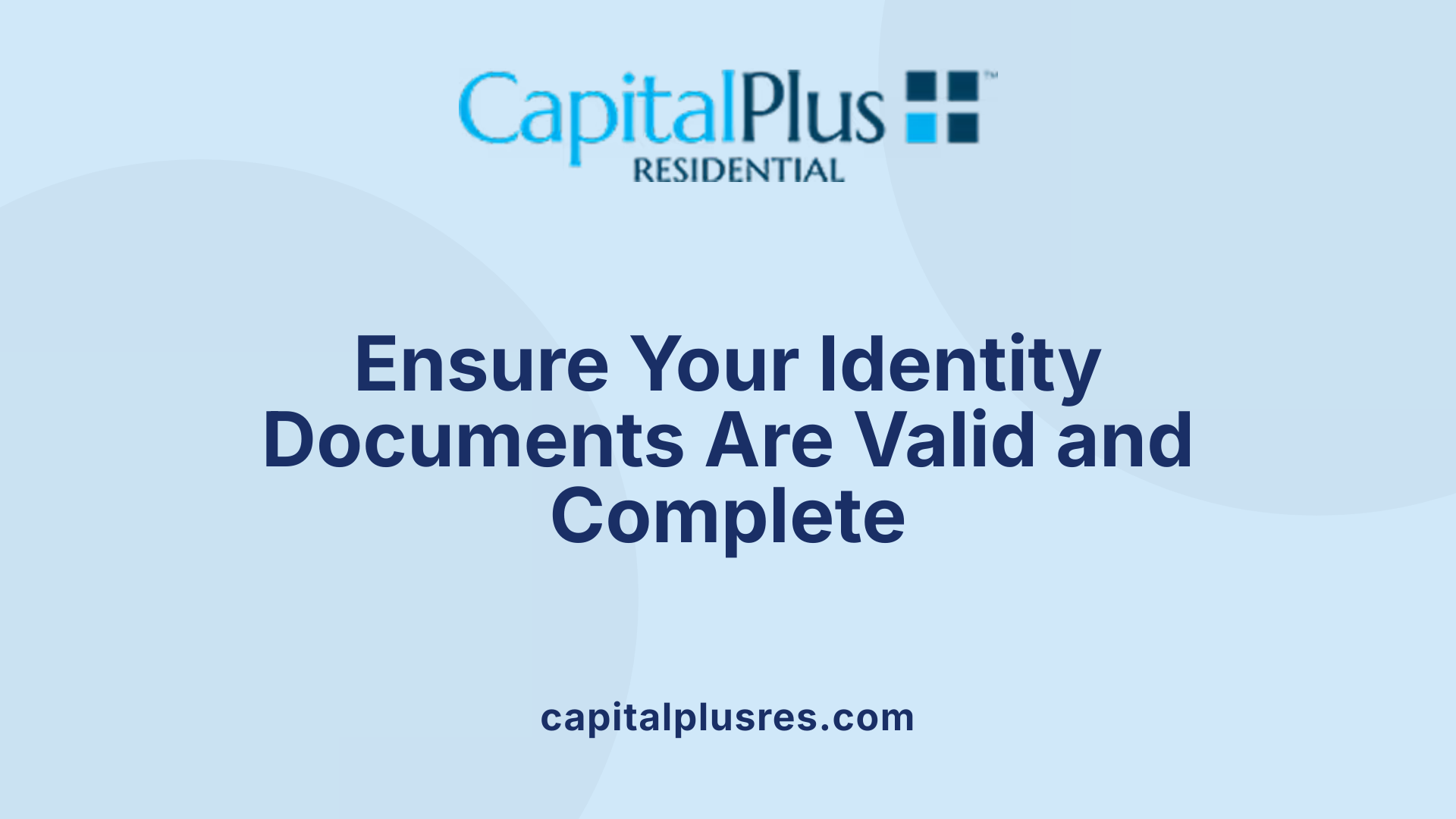
What personal identification documents are required?
To start your mortgage application, you must provide a government-issued photo ID, such as a driver’s license or passport. This document helps verify your identity and ensure that the loan is being applied for by the correct person.
In addition to your photo ID, lenders require your Social Security number or Social Security card. This information is crucial for conducting credit checks and confirming your identity during the process.
Why might legal documents like divorce papers or bankruptcy records be needed?
Legal documents such as divorce papers or bankruptcy records may be requested by the lender to give a full picture of your financial past and legal situation. These records help the lender assess any previous financial or legal issues that could impact your ability to repay the loan.
If you have gone through a divorce, providing divorce decrees can clarify any financial obligations or legal arrangements affecting your assets. Bankruptcy reports are necessary if applicable, as they influence your creditworthiness and the lender’s decision.
Collecting these documents ahead of time can help speed up your mortgage process and ensure transparency with your lender.
Most commonly, you will also need to provide documents outlining your residence history over the past two years, including addresses and landlord or mortgage details. Being organized and prepared with these items contributes to a smoother application experience.
Here's a summary table of the documentation required for personal and legal verification:
| Document | Purpose | Additional Notes |
|---|---|---|
| Driver’s License/Passport | Confirm identity | Must be current and valid |
| Social Security Number/Card | Credit checks | Needed for identity confirmation |
| Residence History | Verify stability | Addresses from last 2 years |
| Divorce or Bankruptcy Records | Legal history | Shows financial and legal background |
Preparing these documents in advance ensures a comprehensive application and reduces delays. Ensure all copies are clear, complete, and up-to-date to facilitate the process.
Income Verification: Ensuring Ability to Repay
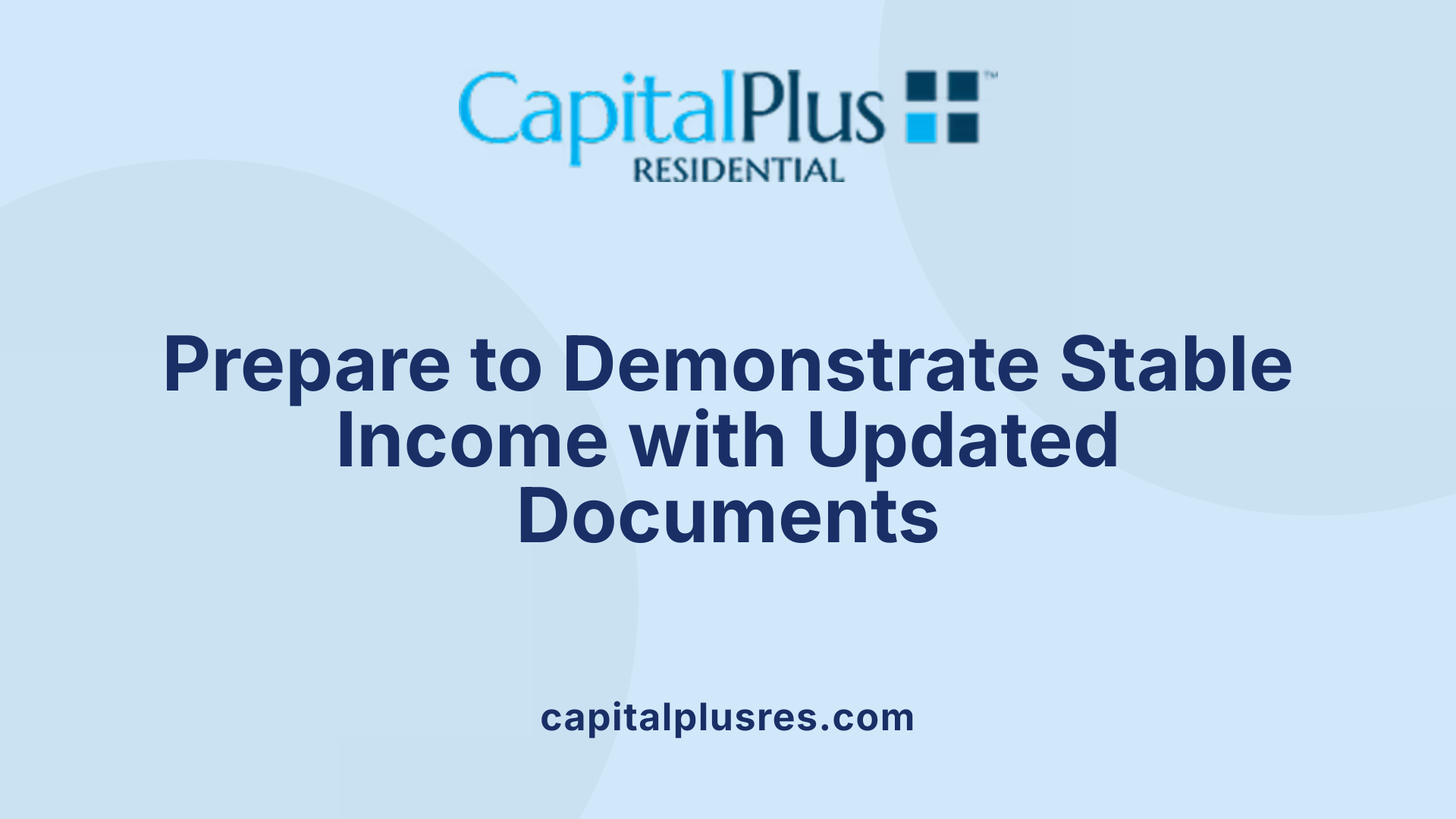 When applying for a mortgage, proving your income is a critical step to demonstrate your ability to make payments consistently.
When applying for a mortgage, proving your income is a critical step to demonstrate your ability to make payments consistently.
Applicants need to provide several types of documents that verify their employment earnings and income stability. Among the most common are pay stubs from the last 30 days, which show current earnings and any additional compensation like overtime or bonuses. These recent pay stubs should be signed by your employer, especially if your income varies.
Additionally, W-2 forms from the last one or two years are essential for confirming your annual wages. Lenders often request these documents to verify income over time and ensure consistency.
Tax returns from the past two to three years are also crucial. They offer a comprehensive view of your total income, deductions, and overall financial health. For self-employed individuals, these returns should include all pages and relevant schedules to help lenders assess their true earning capacity.
For those who receive income from other sources, such as freelance work, rental properties, or investments, providing 1099 forms is often necessary. These documents help verify income streams outside traditional employment.
If you are self-employed, additional documentation like profit and loss statements or business tax returns are typically required. These documents help lenders evaluate your business income and stability, especially if your earnings fluctuate during the year.
Gathering these documents early can assist in streamlining your mortgage application process and demonstrating your financial readiness. Ensuring your income proof is clear, current, and complete will improve your chances of approval.
| Document Type | Typical Time Frame | Purpose | Additional Notes |
|---|---|---|---|
| Pay stubs | Last 30 days | Show recent income | Must be signed if required |
| W-2 forms | Last 1-2 years | Verify annual wages | Usually one or two years requested |
| Tax returns | Last 2-3 years | Confirm income consistency | Include all pages and schedules |
| 1099 forms | As applicable | Verify non-employment income | Relevant for freelancers or contractors |
| Profit & Loss Statements | Current year (if needed) | Show ongoing business income | Especially useful for self-employed |
Preparing these documents thoroughly helps demonstrate your financial stability to lenders and increases your chances for mortgage approval.
Asset Documentation: Demonstrating Financial Stability
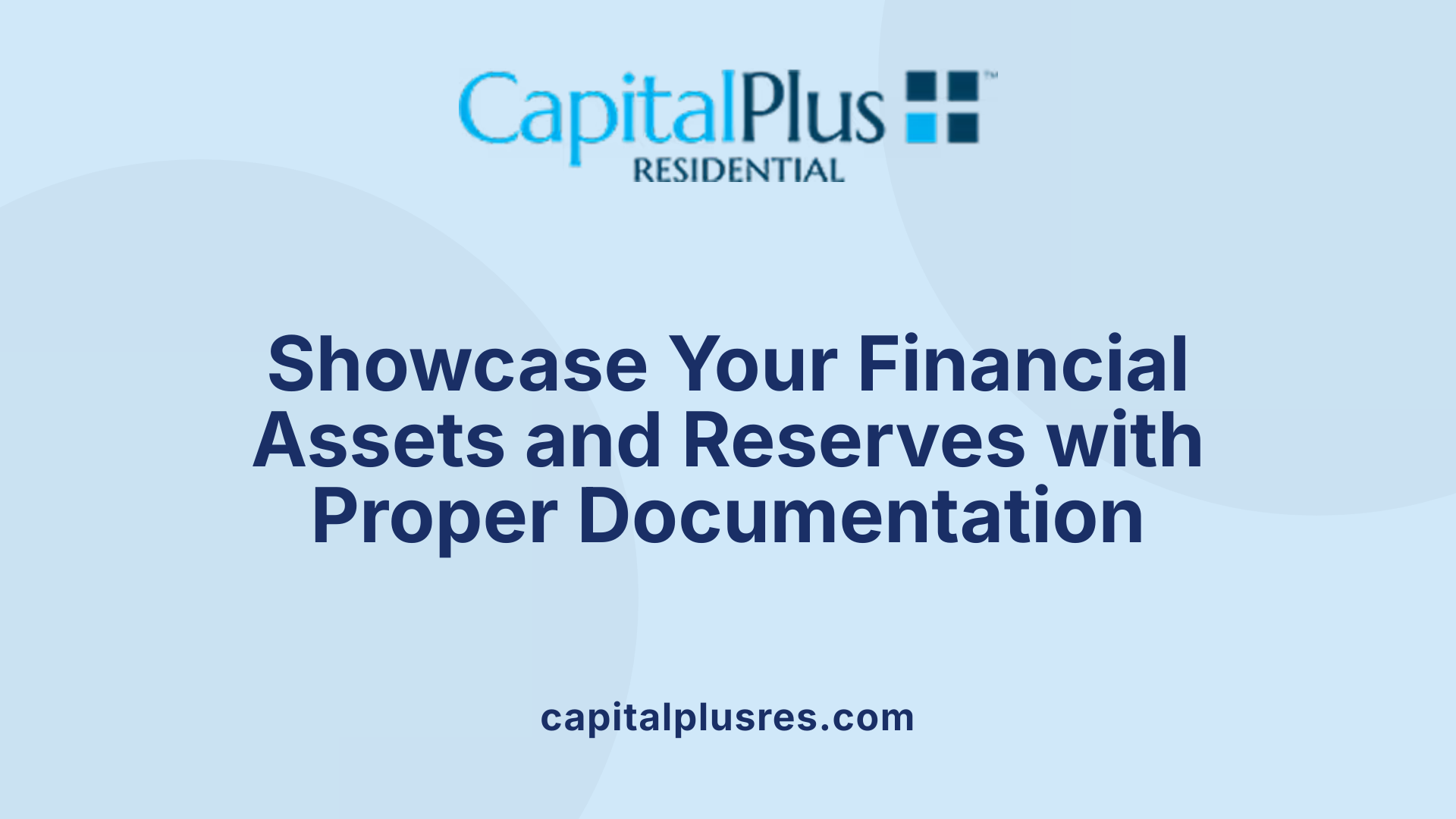 When applying for a mortgage, providing proof of your financial assets is essential to show your ability to cover down payments, closing costs, and demonstrate overall financial stability.
When applying for a mortgage, providing proof of your financial assets is essential to show your ability to cover down payments, closing costs, and demonstrate overall financial stability.
One of the primary documents required are bank statements from your checking and savings accounts for the last two months. These statements reveal your available liquid funds, which are critical for securing the loan and ensuring you have enough resources for the home purchase.
In addition to regular bank accounts, statements of investment and retirement accounts are also necessary. These include brokerage accounts, bonds, certificates of deposit, and retirement savings plans. Providing these documents helps lenders assess your total assets and whether you have sufficient reserves for mortgage approval.
If you're using gift funds to finance your down payment, a gift letter is essential. This letter should specify that the money is a gift with no repayment obligation. You will also need to submit bank statements from the donor's accounts to verify the source of the gifted funds.
Furthermore, it’s important to document any other assets you plan to use for your purchase, such as property, vehicles, or other valuables. Accurate and complete asset documentation reassures lenders of your financial stability and supports a smoother borrowing process.
| Document Type | Description | Supporting Details |
|---|---|---|
| Bank Statements | Checking and savings accounts | Last 2 months, recent transactions |
| Investment Accounts | Stocks, bonds, mutual funds | Last 2 months, current values |
| Retirement Accounts | 401(k), IRA | Recent statements, balance verification |
| Gift Funds | Donations toward down payment | Gift letter, donor bank statements |
Ensuring your asset documents are organized and complete can significantly speed up the approval process. These records confirm your financial readiness and help build confidence with your lender.
Additional Supporting Documents and Special Circumstances
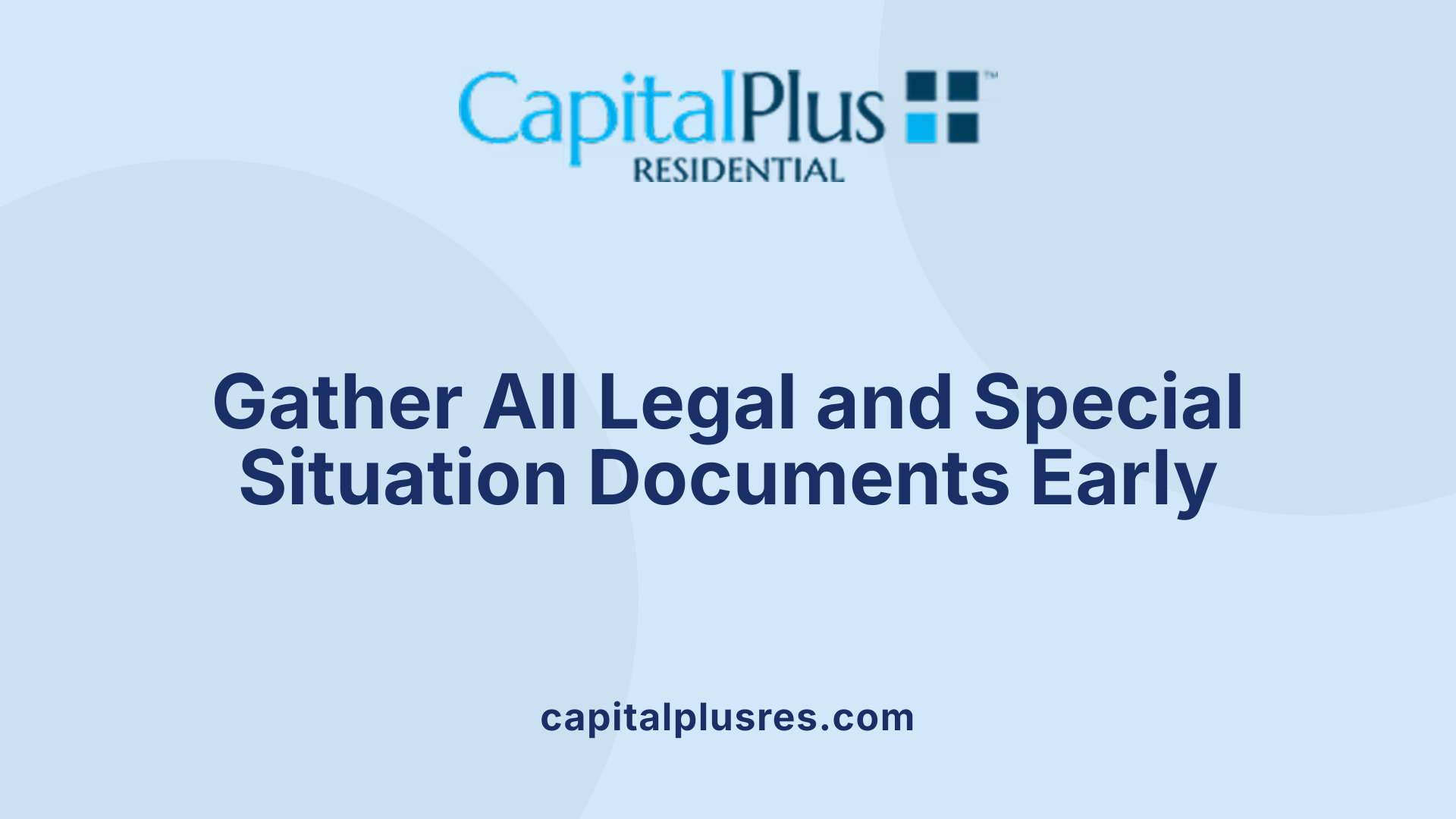
Gift letters for down payment funds
When using gift money for your down payment, a formal gift letter is required. This letter should specify the donor’s relationship to the borrower, the exact amount of the gift, and include an explicit statement confirming that the money does not need to be repaid. Along with the gift letter, the donor’s bank statement may also be needed to verify the source of the funds.
Proof of rental payments or lease agreements
If you have a history of renting, mortgage lenders might ask for proof of rent payments or current lease agreements. This documentation helps demonstrate your ability to make consistent payments, especially for first-time homebuyers or those with limited credit histories.
Mortgage contract or purchase agreement
A signed purchase and sale agreement is essential. This document proves the buyer's intent and the property they plan to purchase. It provides details about the property, purchase price, and agreed-upon terms, serving as a foundational document throughout the mortgage process.
Legal documents for special situations (divorce, bankruptcy, foreclosure)
Lenders often require legal paperwork if you have experienced bankruptcy, foreclosure, or divorce. These documents clarify your current financial situation and show any legal obligations or past financial issues that could impact your mortgage qualification.
Certificates of homebuyer education or eligibility documents (VA, FHA)
Depending on the loan type, additional certifications or eligibility proof might be necessary. For example, veterans applying for VA loans need a certificate of eligibility, and first-time buyers using FHA loans may have to complete a homebuyer education course. These documents confirm your qualification for specific loan programs and often improve your chances of approval.
In summary, gathering these supplementary documents can streamline your mortgage application, especially when special circumstances or specific loan programs are involved. Being well-prepared with all relevant paperwork ensures smoother processing and increases the likelihood of approval.
Organizing and Preparing Your Documents for a Smooth Application Process
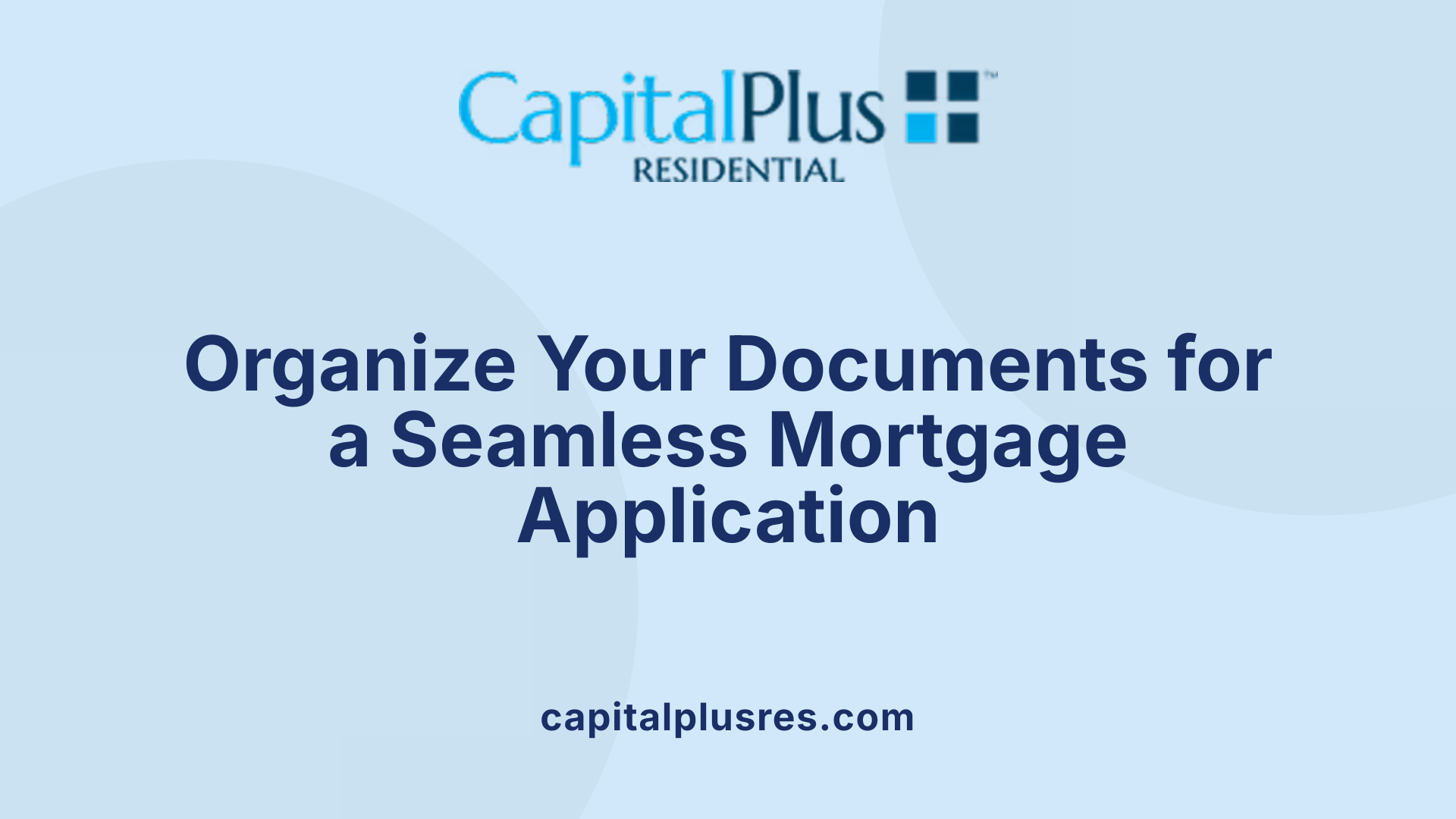 When applying for a mortgage, being well-prepared and organized with your documents can significantly streamline the process. Start by creating a dedicated folder, either physical or digital, where you can store all relevant materials. Clearly label each file—such as "Pay Stubs," "Tax Returns," or "Bank Statements"—to keep everything easy to find.
When applying for a mortgage, being well-prepared and organized with your documents can significantly streamline the process. Start by creating a dedicated folder, either physical or digital, where you can store all relevant materials. Clearly label each file—such as "Pay Stubs," "Tax Returns," or "Bank Statements"—to keep everything easy to find.
Ensure that all documents are current, complete, and accurate. For example, gather pay stubs from the last 30 days, bank statements from the past two months, and tax returns from the last two to three years. Keeping copies organized helps avoid delays.
Digital copies are especially useful—they allow quick sharing and easy access. Scan physical documents if needed, and store them securely in a cloud folder or on a secure drive. This way, if a lender requests additional files, you can respond swiftly.
It's also wise to update any documents if your financial situation changes during the process. Verify that all files are current and reflect your latest financial picture.
Finally, review your checklist regularly to ensure you haven't missed any important documents. A thorough, well-organized packet helps make the mortgage application smooth, efficient, and faster, reducing stress and increasing your chances of approval.
For more tips, search for "organizing mortgage documents" to discover additional ways to prepare effectively.
Navigating the Mortgage Documentation Process Effortlessly
Thorough preparation and organization of your mortgage documents are crucial to a successful loan application. By understanding what is required, assembling all necessary paperwork early, and keeping everything well-organized, you can simplify the process, avoid unnecessary delays, and position yourself for a favorable loan approval. Being proactive and detail-oriented helps ensure a smoother path to homeownership.
References
- Documents you need to apply for a mortgage
- Complete Checklist of Documents Needed for a Mortgage
- Documents Needed For Mortgage Application
- Applying for a mortgage: 7 documents you may need
- Applying for a Mortgage: How to Apply & Home Loan Tips
- Mortgage Application Checklist: Everything You Need To ...
- Create a loan application packet
- Ultimate mortgage preapproval checklist









